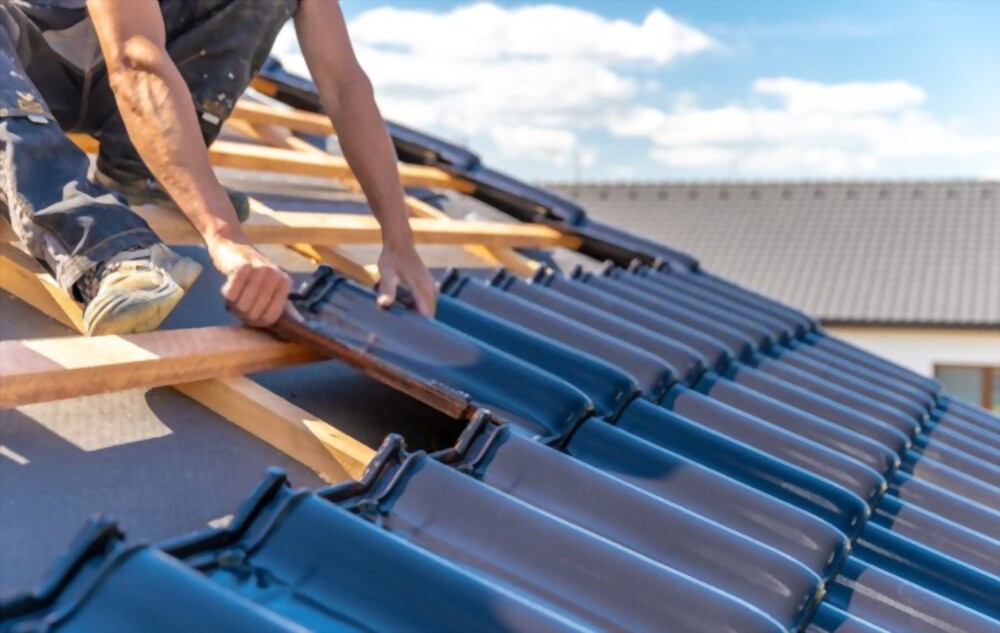Roof repointing is a vital maintenance process that ensures the longevity of your home’s roof. This process involves repairing the mortar between the tiles or bricks on your roof. When it is correctly executed, roof repointing can help safeguard your home from water infiltration, preventing the growth of mold and rot. In this comprehensive article, you will get a thorough understanding of roof repointing, including its advantages, the process involved, and everything you need to know in between in vivid details.
What Is Roof Repointing?
Roof repointing is a critical process that involves replacing the cement mortar between the roof tiles or slates to keep the roof in optimal condition. The mortar acts as a binding agent, securing the tiles or slates in place, and serves as a barrier against water penetration. However, with prolonged exposure to harsh weather conditions and regular usage, the mortar can wear down, crack, or become damaged, compromising the integrity of the roof. This is where roof repointing comes in as an efficient solution to maintain the roof’s stability and prevent leaks. It involves the meticulous removal of the old mortar and the replacement of new mortar to ensure that the roof remains secure and free from water damage. By carrying out this process, you can effectively safeguard your home against water infiltration, preventing the growth of mold and rot, and extending the life of your roof.

When Should You Consider Roof Repointing?
If you notice cracked, loose or missing mortar on your roof, it is a sign that repointing may be necessary. Other signs that indicate the need for roof repointing include water stains on the ceiling, dampness in the attic, or an increase in your energy bills. It is recommended that you have your roof inspected regularly to catch any issues early and avoid costly repairs.
Why Is Roof Repointing Important?
Roof repointing is essential for maintaining the structural integrity of your roof. Repointing not only enhances the visual appeal of your roof but also prolongs its lifespan by ensuring that it remains firmly in place and free from damage caused by water infiltration. Failure to repoint your roof could lead to significant expenses in the future if water damage is left unattended, potentially resulting in costly repairs. By regularly repointing your roof, you can prevent these issues and ensure the long-term protection of your home.
The Benefits Of Roof Repointing
#1 Prevents Leaks: Repointing ensures that the roof is properly sealed, preventing water from entering your home.
#2 Increases Energy Efficiency: Repointing the roof ensures that the tiles or slates are firmly held in place and that the protective layer remains intact, thus enhancing the insulation of your home and lowering your energy costs.
#3 Improves appearance: Repointing can give your roof a fresh, new look, increasing the curb appeal of your home.
#4 Increases longevity: Repointing helps to extend the lifespan of your roof by maintaining its structural integrity.
How is Roof Repointing Done?
The process of roof repointing involves removing the old and damaged mortar and replacing it with fresh cement. The first step is to clean the roof tiles or slates thoroughly to remove any dirt, moss, or algae. Next, the old mortar is chiseled out using a hammer and chisel. The new mortar is then mixed and applied between the tiles or slates using a pointing trowel. The excess mortar is then removed, and the roof is left to dry.
Hiring a Professional:
Roof repointing is a complex process that requires specialized skills and knowledge. It’s important to hire a professional to ensure that the job is done correctly. When hiring a professional, make sure to check their qualifications, experience, and references. It’s also a good idea to get multiple quotes to ensure that you’re getting a fair price.

Maintenance and Care:
Once your roof has been repointed, it’s essential to take care of it to ensure its longevity. Regular maintenance can help prevent damage and extend the life of your roof. Some tips for maintaining your roof include keeping it clean, removing debris, and trimming overhanging branches. It’s also a good idea to have your roof inspected regularly by a professional.
DIY vs Professional Roof Repointing
While DIY roof repointing may seem like a cost-effective solution, it is important to note that it is a complex and labor-intensive process that requires experience and expertise. A professional roofing contractor has the necessary tools, equipment, and training to perform the task safely and effectively. Hiring a professional ensures that the job is done correctly and saves you from potential injury or damage to your roof.
Roof repointing is an essential maintenance task that should not be overlooked. It helps to maintain the structural integrity of your roof, prevent leaks, and improve its appearance. If you notice any signs of damage to your roof, it is important to have it inspected by a professional roofing contractor. By keeping your roof in good condition, you can ensure the safety and comfort of your home for years to come.




